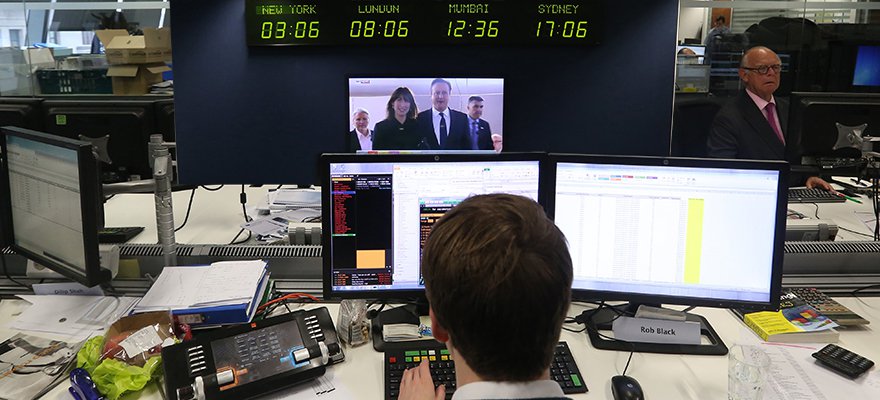The obvious starting point is to explain the term “Adjacents” or “Adjacent Businesses”. This is the hit term of 2017 when it comes to global business and it simply means diversification into a similar business line to your core business that is related, but not the same.
The London Summit 2017 is coming, get involved!
The most common example of this is your regular community pharmacy, while their ostensible business is to sell prescription medication, the wholesale cost of medication, licensing and insurance costs, amongst others, has prompted pharmacies to venture into selling their industry adjacents, being non-prescription medication and cosmetics.
[gptAdvertisement]
The concept of adjacents has become increasingly important as multiple pressures have been forcing businesses to search for extra revenues streams from their clients. Within the retail trading market, the effects of regulation and market competition have increased marketing costs and reduced profit margins. Many other sectors have also seen competition increase whilst simultaneously affected by either regulation or the move to online.
Take the music industry as an easy example – we no longer buy records or CD’s – so where do they make their revenue? Business are looking into retail trading as a new business line, and here are my predictions of which sectors will be looking to move into the industry.
High Street Banks
Actually, as predictions go, this is not really foresight as the move has already started. Barclays and Santiago both offer retail trading in currencies and other instruments to their clients. With other banks already researching how they can offer these services, it will only be a matter of time before other major high street banks will be opening their doors to retail trading.
The stiff competition among banks and the emergence of online banking have forced banks to slash their fees, while the low interest rates that have become part and parcel of this millennium have meant that profit margins per client has drastically dropped. Following the well-publicized crashes, regulation has also restricted their ability to attract new loan seekers.
Retail trading and investment is a logical move. They already manage financial accounts and can offer higher returns than traditional savings accounts, while generating revenues from commissions.
Exchanges
Again, not so much of a prediction, this is already a current trend, particularly in mainland China right now. Recent regulations have seen their market disappear overnight. Once there had been multiple Exchanges offering services to the public throughout China, but recent governmental changes have reduce the number permitted to one per region. This has left many businesses scrabbling to find an alternative or close down.
Retail trading is extremely close to what they have been offering, especially on OTC instruments like stocks, indices and even commodities. There is a learning curve and some reservations, but many exchanges are already moving in this direction.
Insurance and Life Assurance
The first real prediction is a fairly logical assumption. Much like the high street banks competition, regulation and online comparison sites have seen profit margins slashed while the cost of acquisitions rise. Another common issue is the low interest rates, meaning lower rates of returns for the customers.
A move into retail trading and investment seems a very natural step and will offer their customers the ability to control their investment strategy with far more flexibility in terms of risk strategy and time. At the same time, investment trading provides higher revenues from commissions than traditional policies based on fixed baskets.
TELCOs
This is the least obvious prediction, and therefore more difficult to come about. Once TELCOs had enjoyed tariffs based on call time in minutes. Mobile networks had, once upon a time, enjoyed revenues from mobile content and micro Payments . Apple and Android stores have ended this revenue stream entirely.
It is the mobile networks rather than the terrestrial providers that will be looking at how to Leverage their client base first. A few years ago O2 considered moving into banking and actually took a banking license. The move into banking is logical – mobile networks manage customer financial accounts and already have the infrastructure to offer mobile access to accounts and mobile payments.
The same way that the high street banks are looking to retail and investment, I believe the TELCOs will also come to the same conclusion of investment trading being an ideal fit.
There are a number of others that could be mentioned like Money Managers, Call Centers, Credit Card companies, Binary Option Brokers and Online Gaming and Betting brands. However, for each of these industries to sufficiently adjust their business line into retail trading and investment, they will need the support of a technology company already in the trading industry to address the following issues:
- Making the transition simple with technology and services
- Marketing automation systems
- Engaging frontend systems to suit many levels of trading experience
- Trusted regulation to keep the industry clean and reputable
Necessity is, and always has been, the mother of all invention, though this time its adaptation. As change approaches adjacent businesses of the retail trading and investment sector, are you going to be ready for it?
This article was written by Nicc Lewis, CMO at Leverate.






















